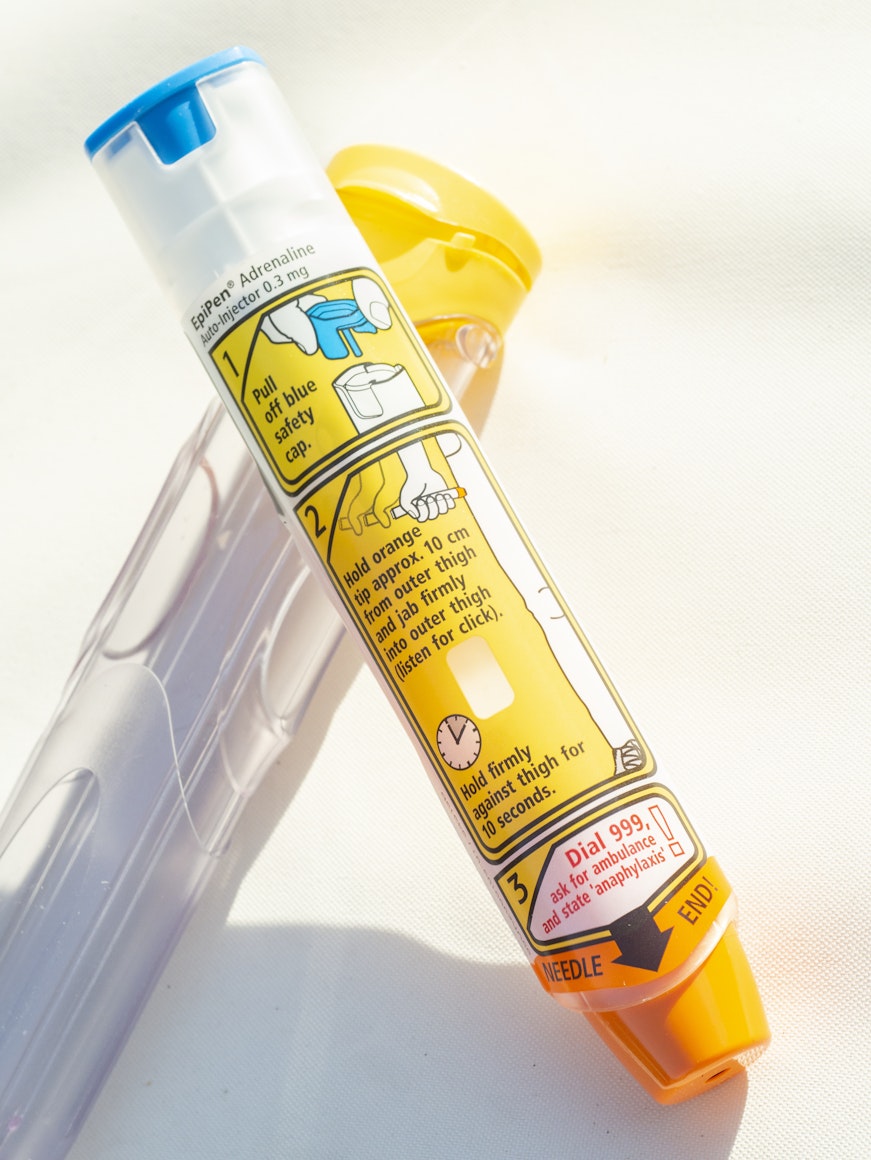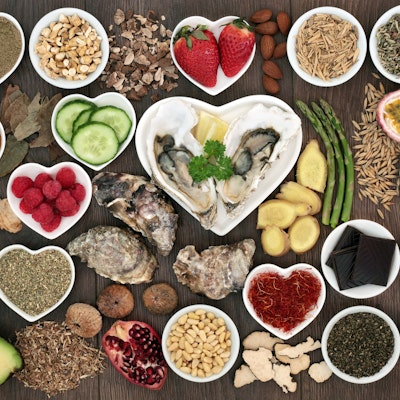Allergen Deep Dive: Eggs

Eggs are a cooking staple and a cornerstone of diets around the world. Used in both sweet and savoury dishes, they’ve been used in recipes and for stand alone meals for thousands of years.
They are also, however, one of the most common foods people have an allergy to - especially children. Those who are allergic to Eggs are generally affected more by the white than the yolk but since both can trigger a reaction it’s best to avoid the egg entirely.
Read on to find out everything you need to know about an Egg allergy, including the foods you need to avoid and the symptoms you need to look out for...
What are Eggs?
Eggs can be laid by the females of several different species, but are commonly associated with birds and reptiles (other egg-laying animals include amphibians, fish and some mammals).
Birds and reptile eggs consist of:
- A protective shell
- Yolk (the vitellus)
- White (the albumen)
Eggs contain high amounts of protein (particularly the yolk).
Can you be allergic to Eggs?
Yes, you can be allergic to Eggs.

As with other allergies, a reaction occurs when the sufferer’s body misidentifies the allergen as a harmful substance and the immune system fights against it. For eggs specifically, an allergic reaction is usually triggered by proteins in the egg white (though some people are also affected by the yolk). This protein can bind to antibodies made by the immune system and prompt the body's defences to kick in.
What is an Egg allergy?
An allergy occurs when a person’s body misidentifies a harmless substance as being dangerous, and triggers a reaction from the immune system. These reactions can vary, and include anything from uncomfortable itching to life-threatening anaphylaxis.
An allergy is different to an intolerance, with an allergy affecting the immune system and an intolerance not affecting the immune system. A sensitivity to a substance means that its effects (such as caffeine being a stimulant) are felt more keenly than usual.
When someone has an Egg allergy, it is triggered by the proteins in egg whites, and sometimes the yolk.
How common is an egg allergy?
Egg allergies are very common. After milk and peanuts, it is the most common food allergy and as many as 2% of children are estimated to be allergic to eggs.
Eating raw or undercooked eggs can make you ill even if you don’t have an Egg allergy. Some eggs contain a germ called salmonella. Salmonella can make you sick, and experience a fever, cramps, headache, diarrhea and nausea and vomiting. These are also symptoms of an Egg allergy so be careful not to mix up the two.
You can help minimise the risk of salmonella by throwing out any dirty or cracked eggs, and storing your eggs in the fridge (or at least below 4 degrees celsius).

What is an Egg intolerance?
An intolerance to a food or drink is different to an allergy because it does not affect the immune system, and cannot result in anaphylaxis. It does however, affect other areas of the body - especially the digestive system.
The most common symptoms of an egg intolerance are bloating, gas, cramps, upset stomach and diarrhea. Some people have a temporary intolerance to eggs, whilst others have it for life.
It’s important to understand that allergies and intolerances can share symptoms but only an allergy can trigger anaphylaxis, so getting the correct diagnosis and medication is critical.
What food and drinks do you find Eggs in?
Eggs are a very popular food and can be found in many, many foods. They are a popular ingredient for both cooking and baking with and you can find them in:

- Cakes
- Quiche
- Mousse
- Souffle
- Mayonnaise
- Pastries
- Meringue
- Marzipan
- Pasta
- Sauces (e.g Tartare and Hollandaise)
- Artificial flavourings and colourings
- Natural flavourings
- Custard
- Salad and salad dressing
- (Some) Ice cream
- Eggnog
- Cocktails (Such as Whiskey Sour)
- Moussaka
- Frittata
Egg is also used as a glaze for many other baked goods.
What are surprising foods that contain Eggs?
Egg is a very common ingredient and turns up in all sorts of food and drink products. Some that you might not expect are:
- Artificial crab meat (Surimi) sometimes contains egg white
- Pasta (predominantly fresh pasta, but always check the label of dried pasta to be sure)
- Marshmallows
- Baked pretzels may be glazed with egg
- Bagels may be glazed with egg
- Pies may be glazed or brushed with egg
- Protein Shakes can either include egg white powder outright, or as part of the protein powder
- Lollipops
- Wine – sometimes egg is used in the wine-making process
- Battered foods
- Breaded foods
- Coffee foam

What does an allergic reaction to Eggs look like?
Egg allergy symptoms usually appear within an hour of eating or coming into contact with the allergen. These symptoms include:
- Red, itchy rash (either raised or not raised)
- Dizziness
- Vomiting and nausea
- Mouth itching or tingling
- Hives
- Shortness of breath and/or wheezing
- Sneezing
- Diarrhoea
- Cramps
- Face, mouth and/or throat swelling
- Abdominal pain
- Difficulty swallowing
- Wheezing
- Nasal congestion
- Runny nose
An allergic reaction may also result in anaphylaxis. This can be fatal, and the symptoms include:
- Difficulty breathing
- Faintness and dizziness
- Swollen tongue and issues with speaking or swallowing
- Tight chest
- Collapsing and losing consciousness
If a person experiences anaphylaxis an ambulance must be called.

How do you treat an Egg allergy?
An Egg allergy is best treated by checking ingredients and avoiding foods and drinks that contain eggs.
If a mild reaction is suffered, antihistamines may help. If an anaphylactic reaction occurs an AAI should be administered and 999 called.
How can I avoid Eggs?
If you have an Egg allergy, vegan cookbooks are a great resource of safe recipes you can enjoy. When eating out make sure that the dish you order does not contain eggs, and do not assume that by ordering a vegan option you will be safe. Even with vegan foods there is a risk of cross contamination and traces of Egg. The only way to know that a food does not contain Egg is to check the ingredients.
Be aware that those who don’t eat eggs could lose out on the following nutrients: protein, iron, biotin, folacin, riboflavin and vitamins A,D,E, & B12. So those with an egg allergy should take the appropriate supplements or eat a diet with foods that are naturally rich in these vitamins.
What’s an alternative for Eggs?
There are several alternatives to eggs. In cooking and baking eggs are mostly used as a binder, so when making these dishes other emulsifying ingredients can be used for the same purpose. You can substitute eggs with applesauce, mashed banana, nut butters, silken tofu, and ground flaxseeds (whisk one tablespoon of flaxseeds with 3 tablespoons of water until absorbed and thickened).
There are also several direct egg substitutes on the market. These include Ener-G egg replacer, Loprofin egg replacer, No-egg replacer and Loprofin egg white replacer.

Are Eggs one of the 14 major food allergens?
Eggs are one of the 14 major food allergens. This means that pre-packed food sold in the UK, and the rest of the European Union, must clearly indicate on the label if it contains Eggs.
The other major food allergens are
- Celery
- Cereals containing Gluten
- Crustaceans
- Fish
- Lupin
- Milk
- Molluscs
- Mustard
- Nuts (Tree Nuts)
- Peanuts
- Sesame
- Soya
- Sulphur Dioxide
Find out more about the 14 major food allergens on our Allergens page.
You may also be interested in…


You may also be interested in…






